The link between skin health and nutrition has been clear since Ancient Times.

The appearance of your skin is the result of genetics and external factors :
sun-exposure (UV), smoking, pollution, sleep deprivation, stress, nutrition and many others. They will all in some way, affect the quality of your skin.
The best way to maintain a young and glowing skin is prevention.
When it comes to skin health, food is more than 25% of the picture

Skin is the largest organ of your body.
Skin, the protective organ
It serves as a protective barrier to prevent harmful substances from entering the body. Damaging sun rays, chemicals, pollution, tobacco... all can affect your skin.
Our skin does naturally age. Wrinkles and age spots are the inevitable result of time. Furthermore, skin-ageing may be sped up by overexposure to the sun and tanning beds, strong soaps, chemicals and poor nutrition. With this in mind, a holistic approach is the best solution.

Similar to other organs, our skin requires special care for optimal function.
Everyone has a favourite face cream or treatment, but beautiful skin starts with nourishment from within. Older cells are constantly shed and replaced by younger ones. That’s why : steady supply of key nutrients is essential to support this growth.
Eat the correct balance of foods and you'll feed your skin the vital nutrients it needs to help it stay healthy, strong, soft and radiant.

How to protect your skin with the help of nutrition
Nutritional strategies include powerful allies :
· antioxidants to fight the harmful action of those unstable molecules called "free radicals" which will increase and accelerate skin-aging.
· the right fats to seal-in moisture and improve response to inflammation.
· water as good hydration will prevent dryness and wrinkles synthethis.
· a stable glyceamia to regulate insulin, sebum production and inflammation,
· a good digestion : to eliminate intoxicating metabolic waste which gives a grey aspect to the skin and can cause itchiness, and inflammatory lesions.
A) ANTI-OXYDANTS
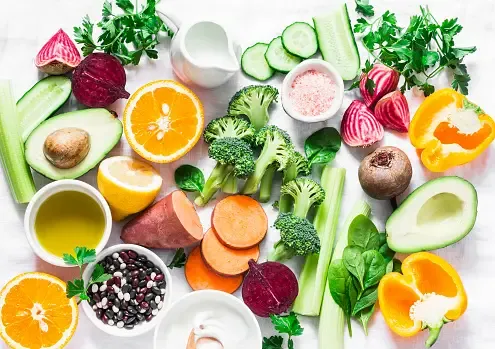
Anti-oxydants will fight those unstable molecules called free radicals. Those monsters are set free by the sun, pollution, chemicals, smoke, tanning beds, frequent hand-washing with antibacterial soaps. All these will result in damaging the tissues and will erode your skin like water rusts metal. Anti-oxydants will help you reduce the harmful action of free-radicals. This is how they work :


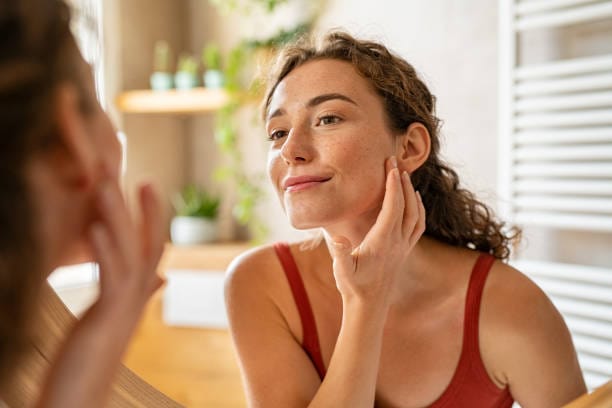
Free radicals damage collagen,(ie: the protein latticework / scaffolding that maintains the skin's firmness and suppleness.) This process is called “oxidative stress”. Against oxidation we use anti-oxidants like Vitamin A, C, E, selenium, lycopene, xeaxanthine, lutein, and phytonutrients like flavonoids, polyphenols, phytoestrogens. They have scientifically proven anti-ageing and anti-cancer actions.
· Vitamin A exists in two different forms :
Retinol (found in fish oil, liver, dandelion, carrots, spinach, parsley, cress …),
Carotenoids (pro-vitamin A that can be converted into vitamin A in your body and found in oranges, blueberries, sweet potatoes, bell peppers, tomatoes, broccoli…)
Vitamin A acts as a natural sunblock.
Vitamin A deficiency causes abnormal visual adaptation to darkness but it also causes dry skin, dry hair and broken finger nails.
Vitamin A is better absorbed with parallel intake of vegetable oils. Note that in high amounts, they may add an orange colour to your skin.
· Vitamin C promotes your production of collagen ie the main structural protein that keeps your skin strong, smooth, oil free and healthy.
Poor intake of this vitamin can cause loss of skin elasticity, and poor healing of cuts and scrapes.
Vitamin C also protects you from the damage caused by the sun and pollution.
Vitamin C deficiency is rare these days but common symptoms include dry, rough and scaly skin, poor healing of cuts, loss of elasticity
Main sources include : kiwis, parsley, bell peppers, cabbage, broccoli, spinach, lemon, oranges, tomatoes…
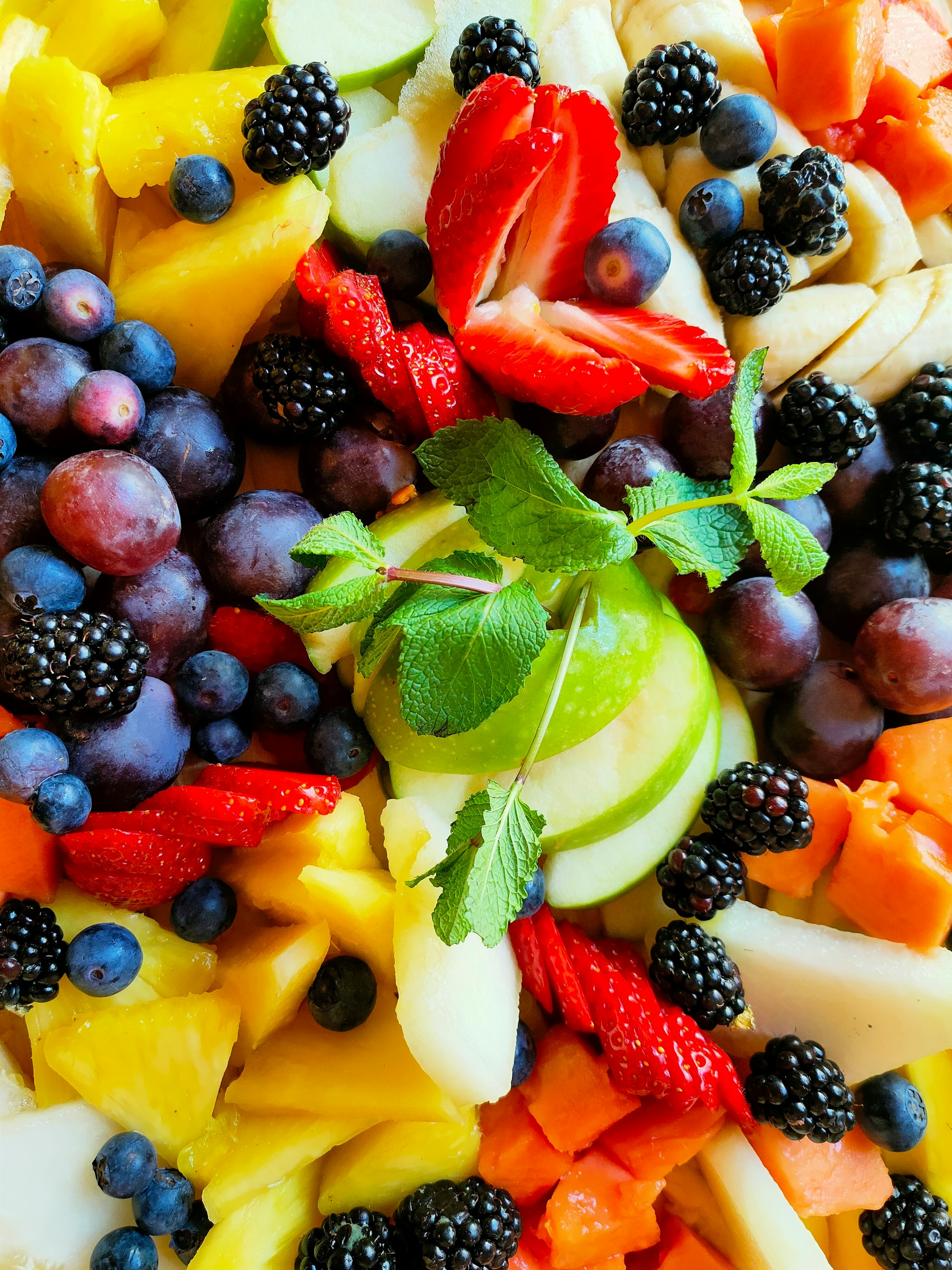
· Vitamin E will protect cells from oxidative damage, and inflammation ; it will promote healthy skin renewal
Main sources include almonds, avocado, hazelnuts, walnuts, pine nuts, sunflower seeds, and corn oils, fatty fish.
Vitamin E is more effective when combined with vitamin C
· Selenium works alongside other anti-oxydants such as vitamins E and C and is essential to support the immune system
Selenium will help you fight to all sorts of skin issues including acnea, psoriasis, lupus, eczema, itching, dryness …
Main sources include brazil nuts , fish, shellfish, eggs, wheat germs, tomatoes , broccoli…
B) THE RIGHT FATS
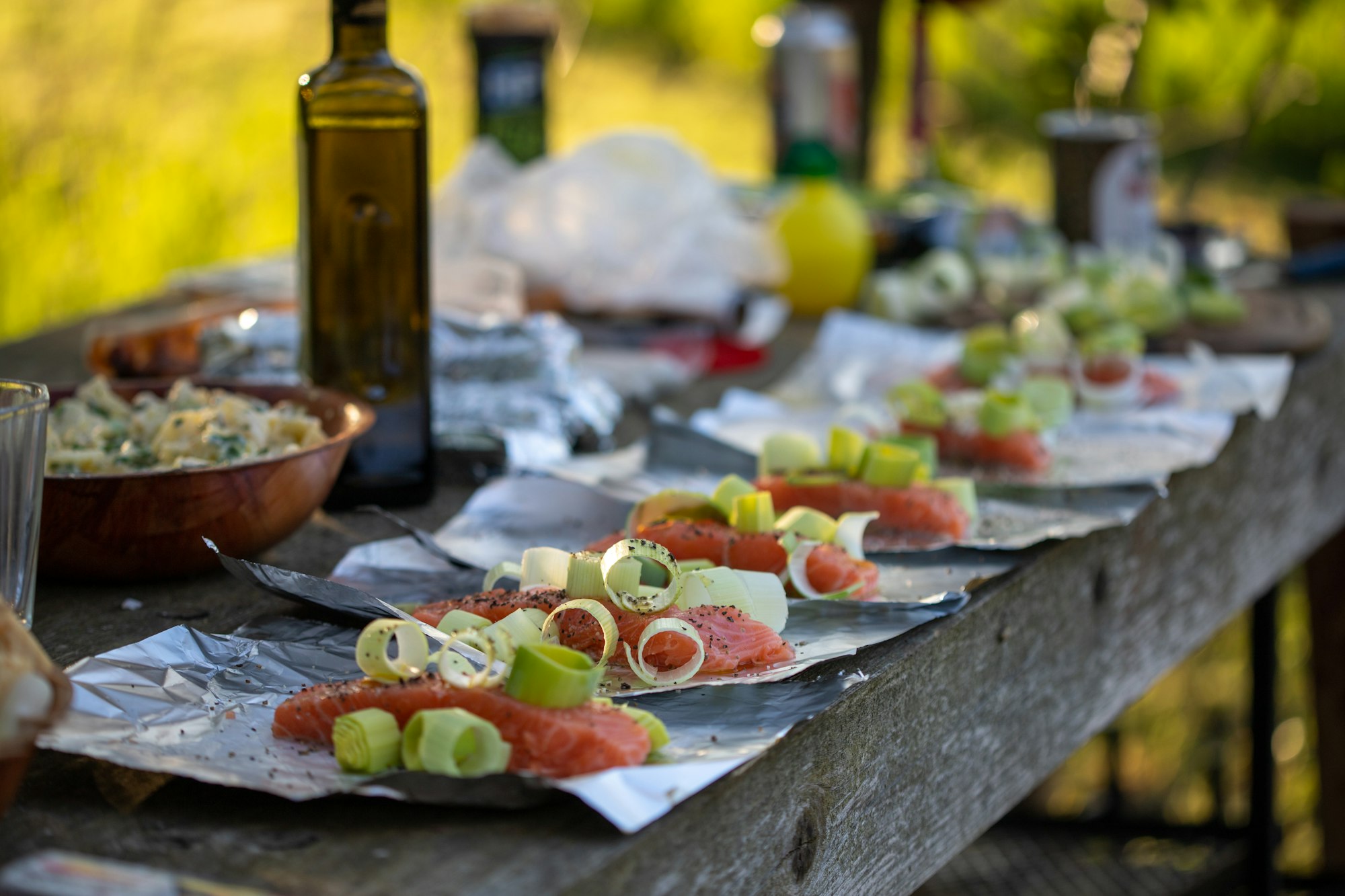
Fats are necessary to keep your skin thick, supple and moisturized. But there are good ones and bad ones.
Omegas 3, 6 and 9 will help seal in moisture in the tissues
Omega 3 and 6 are polyunsaturated fats. They help reduce the inflammatory response of the skin to aggression
Omega-3 fatty acids (ALA, EPA, DHA) reduce inflammation which can cause redness and acnea. Some studies show that they may fight auto-immune conditions affecting your skin like psoriasis, lupus and the symptoms of eczema.
Main sources include : macadamia nuts, cashews, chia seeds, hazelnuts ; rapeseed oil or walnut oil are good for salad dressings; for cooking, chose olive oil or ground-nut oil
Careful with walnuts, Brazil nuts, pine nuts and pecans which have high contents of omega-6 ( The omega3 / Omega6ratio should be 4/1) which in excess can trigger inflammation process
Omega-6 (linoleic and derivatives LA, GLA, AA) are found in meat and dairy products. They strengthen the structural integrity of your skin as a strong barrier against external aggression
Omega 9 are monounsaturated fats. They improve insulin sensitivity and inflammation.
C) WATER : Stay Hydrated

Drinking plenty of water and fluids is essential for a healthy skin. We lose fluids through urination, bowel movements, breathing and sweating.
Getting enough fluid helps your body absorb water-soluble nutrients. It also helps carry nutrients and oxygen to cells.
D) DIGESTION
It is essential to have a good working transit as constipation will lead to an accumulation of metabolic waste and toxins. These will weaken the good Gut bacteria that support your immune system.
Good gut bacteria are essential as they break down food to nourish and repair cells including skin cell. They fight nasty lots of invaders and therefore strengthen your general health and immunity ! To keep those helpful bacteria happy, remember they love fermented food like kefir, fermented yoghurt, zawerkraut !
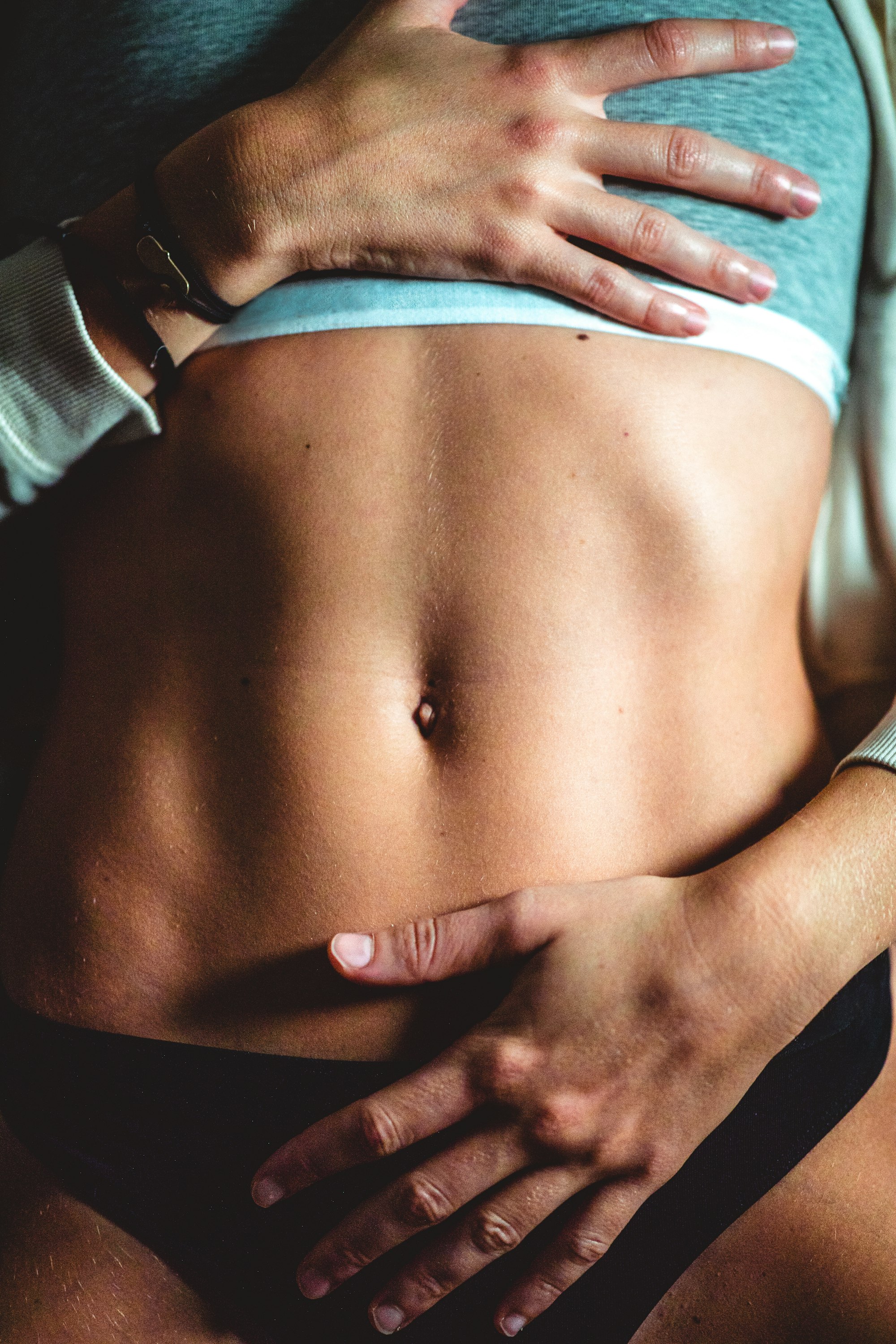
E) Good Oxygen Supply
Your skin needs a constant supply of oxygen. But that doesn't mean standing in the air. Skin needs to be supplied in oxygen through blood. To increase the oxygen carrying capacity of the blood your allies are iron, proteins and B-vitamins …
Skin Tonics include
B vitamins found in whole grains, milk and wheat germs They will help speed up wound healing and prevent dry, flaky or oily skin.
Vitamin D in milk might help curb symptoms of psoriasis.
Zinc found in meat, seafood, and legumes helps repairing cuts and scrapes.
The polemic around gluten :
Gluten, may be mistakenly identified as a source of skin inflammation, Those with inflammatory skin disease like psoriasis and eczema may cut gluten from their diet in an attempt to improve their condition, but such a change would only make a real difference for those with a diagnosed gluten allergy or hypersensitivity. “Gluten is not inherently inflammatory,” “The vast majority of people can eat gluten without any problems.”
elimination diets in general cause people to miss out on important nutrients



